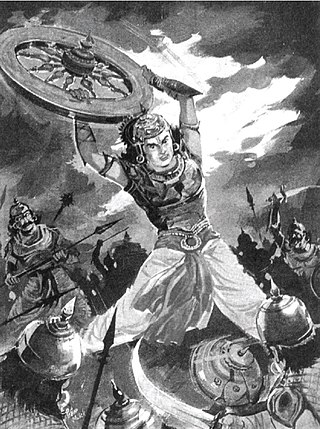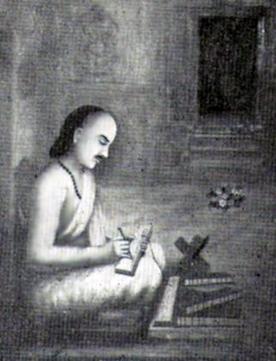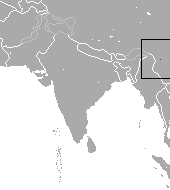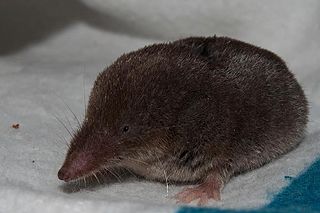
Abhimanyu is a warrior from the ancient Hindu epic Mahabharata. He was the son of Arjuna, the third of the Pandavas and the hero of the epic, and Subhadra, the younger sister of the revered Hindu deity Krishna. Abhimanyu is portrayed as a young, strong and talented warrior. He was also one of the few individuals, along with his father, who knew the technique to enter Chakravyuha, a powerful military formation.

Narayanappa, known by his pen name Kumara Vyasa, was an influential and classical Vaishnava poet of early 15th century in the Kannada language. His pen name is a tribute to his magnum opus, a rendering of the Mahabharata in Kannada. Kumara Vyasa literally means "Little Vyasa" or "Son of Vyasa". He was the contemporary and archrival of the famous Veerashaiva poet laureate Chamarasa who wrote the seminal work Prabhulingaleele covering the lives of Allama Prabhu and other Shiva Sharanas, circa 1435. Both poets worked in the court of Deva Raya II.
On Length and Shortness of Life is a text by the Ancient Greek philosopher Aristotle and one of the Parva Naturalia.

Parva is a commune in Bistrița-Năsăud County, Transylvania, Romania. It is composed of a single village, Parva.

The Harivamsa is an important work of Sanskrit literature, containing 16,374 shlokas, mostly in the anustubh metre. The text is also known as the Harivamsa Purana. This text is believed to be a khila to the Mahabharata and is traditionally ascribed to Vyasa. The most celebrated commentary of the Mahabharata by Neelakantha Chaturdhara, the Bharata Bhava Deepa also covers the Harivamsa. According to a traditional version of the Mahabharata, the Harivamsa is divided into two parvas (books) and 12,000 verses. These are included with the eighteen parvas of the Mahabharata. The Critical Edition has three parvas and 5,965 verses.
Hidimba was a powerful demon king who is mentioned in the epic Mahābhārata. He was killed by Bhima and this is recounted in the 9th sub-parva of the Adi Parva.
The Coombes is a 15.9 hectare biological Site of Special Scientific Interest at Hinton Parva in the Borough of Swindon, England, notified in 1989.

Theileria is a genus of parasites that belongs to the phylum Apicomplexa, and is closely related to Plasmodium. Two Theileria species, T. annulata and T. parva, are important cattle parasites. T. annulata causes tropical theileriosis and T. parva causes East Coast fever. Theileria species are transmitted by ticks. The genomes of T. orientalis Shintoku, Theileria equi WA, Theileria annulata Ankara and Theileria parva Muguga have been sequenced and published.
In Hinduism, an astra was a supernatural weapon, presided over by a specific deity and imbued with spiritual and occult powers that caused its effect or impact. Later the word came to denote any weapon which was used by releasing it from one's hand, compared to keeping it one's hand (Shastra). In Ramayana and Mahabharata, Rama had more astras than any other warrior. It is believed that Rama possessed all the astras.
The Adi Parva or The Book of the Beginning is the first of eighteen books of the Mahabharata. "Ādi" in Sanskrit means "first".
Sabha Parva, also called the "Book of the Assembly Hall", is the second of eighteen books of Mahabharata. Sabha Parva traditionally has 10 parts and 81 chapters. The critical edition of Sabha Parva has 9 parts and 72 chapters.
The Udyoga Parva, or the Book of Effort, is the fifth of eighteen books of the Indian epic Mahābhārata. Udyoga Parva traditionally has 10 parts and 199 chapters. The critical edition of Sabha Parva has 12 parts and 197 chapters.
The Parva Naturalia are a collection of seven works by Aristotle, which discuss natural phenomena involving the body and the soul. They form parts of Aristotle's biology. The individual works are as follows :

The pygmy brown-toothed shrew is a species of shrew in the order Eulipotyphla. It is distributed in China. C. parva was initially thought to be the same as Chodsigoa lamula, but it was found to be a separate species.

The Central American least shrew is a species of mammal in the family Soricidae. It is found in the highlands and mid-elevations from the western part of the northern coast of Honduras to central Costa Rica. It is found in El Salvador, Honduras, Nicaragua, and Costa Rica. It was considered to be a subspecies of the North American least shrew until 2002.
Linstead Magna is a civil parish in the East Suffolk district of Suffolk in eastern England.
Linstead Parva is a small village and civil parish in the East Suffolk district of Suffolk in eastern England. It has a small but notable 13th-century parish church, still in regular use. The village pub, The Greyhound, was already established and trading when referenced in 1874, but it closed permanently in March 1955, and is now a private dwelling.
Anushasana Parva or the "Book of Instructions", is the thirteenth of eighteen books of the Indian epic Mahabharata. It traditionally has 2 parts and 168 chapters. The critical edition has 2 parts and 154 chapters. Sometimes this parva is referred to as the "Book of Precepts".

Ashvamedhika Parva, is the fourteenth of eighteen books of the Indian epic Mahabharata. It traditionally has 2 parts and 96 chapters. The critical edition has one sub-book and 92 chapters.







